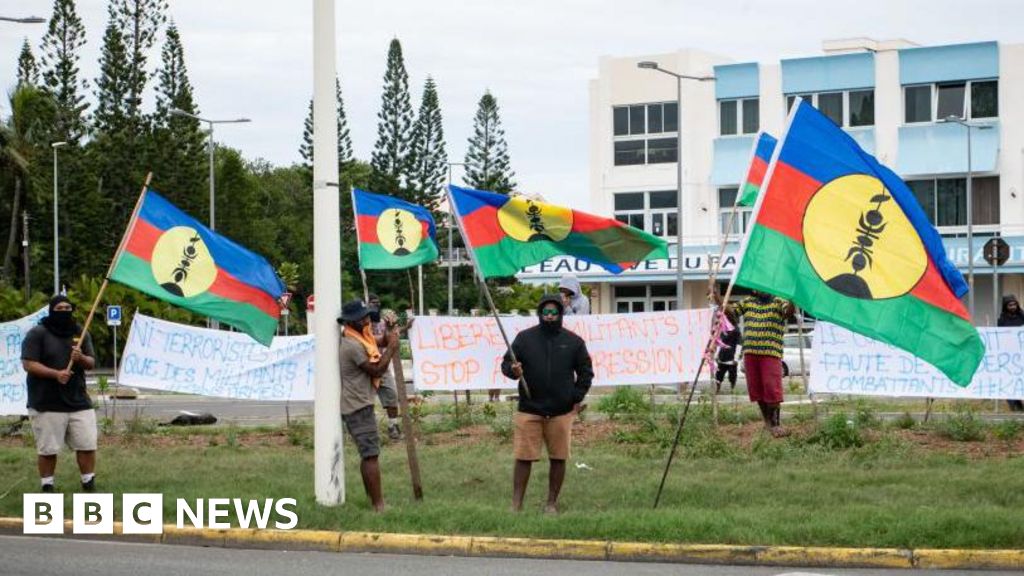In New Caledonia, seven prominent independence activists have been transported to mainland France for pre-trial detention. This decision follows last month’s violent protests in the French Pacific territory resulting in casualties and property damage.

Also Read: Tajikistan Parliament Bans Hijab and Alien Garments
Seven individuals associated with a pro-independence group including leader Christian Tein were flown to France for detention.
Christian Tein, the head of the Field Action Coordination Cell (CCAT) a major pro-independence organization and is a central figure in the detentions. He has been accused of orchestrating the violent protests although the specific charges against him remain undisclosed.
According to Yves Dupas, the public prosecutor in Noumea, the transfer was necessary to ensure that investigations could proceed without external pressure.
The move to mainland France is seen as a measure to avoid local biases and influence from either side of the political spectrum in New Caledonia.
The unrest last month led to the deaths of nine people including two police officers and inflicted injuries on hundreds. The protests caused damage estimated at $1.6 billion, affecting businesses, homes and public infrastructure.
Riots, looting, and arson were rampant, with buildings such as police stations and town halls being targeted.
The violent unrest was by a proposed electoral reform aimed at allowing long-term residents to vote in local elections.
Indigenous Kanaks feared that this change would dilute their voting power, threatening their aspirations for independence.
The electoral reform is viewed by many Kanaks as a step that could permanently sideline their quest for independence.
Tein’s lawyer, Pierre Ortent and other supporters have accused French authorities of politically motivated actions describing the transfer to mainland France as “political deportation”.
Leaders like Daniel Goa of the Union Calédonienne have condemned the French government’s actions as repressive and indicative of a colonial mentality.
Also Read: Namibia’s High Court Overturns Law Banning Gay Sex
The arrests have triggered a new wave of unrest in New Caledonia. Barricades have reappeared and clashes between protesters and law enforcement have intensified leading to more fires, property damage and disrupted daily life.
The French High Commission in New Caledonia has described the situation as requiring rapid and determined intervention by law enforcement and firefighters.
French authorities had previously deployed approximately 3,500 security personnel to manage the unrest, which had already caused disruptions including the closure of the international airport in Nouméa.
The violence has led to the closure of schools and disruptions in daily life. Local leaders and union representatives have called for a return to calm to ensure public safety and continuity of services.
Firefighters, under increasing pressure have urged local leaders to facilitate a peaceful resolution to the conflict.
The protests are rooted in opposition to a controversial voting reform bill, which aimed to extend voting rights to individuals who have lived in New Caledonia for over 10 years.
Indigenous Kanak people and pro-independence groups fear the reform would dilute their political influence and hinder the prospect of future independence referendums.
French President Emmanuel Macron temporarily suspended the reform following the outbreak of violence seeking to restore order and stability in the territory.
The Field Action Co-ordination Cell (CCAT) led by Christian Tein has condemned France’s decision to transfer the activists to mainland France describing it as a colonial tactic designed to inflame tensions further.
New Caledonia, a French colony since 1853 became an overseas territory in 1946. The territory has a complex history of colonialism and indigenous rights movements.
Also Read: Philippines Demands Return of Seized Equipment and Compensation from China



















